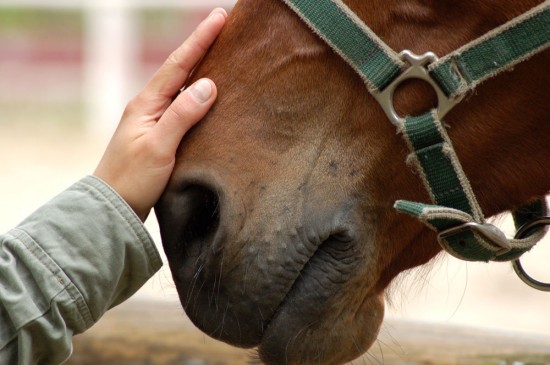

Fostering is a term that we generally associate with the care of children, but dogs can also be fostered, for a variety of different reasons. Fostering involves placing a dog within a temporary domestic home for a period of time that may either be set or flexible, rather than housing them in a rescue centre or other group home, or to provide an interim home for a dog before a permanent home comes up.
Fostering is also commonly undertaken by organisations that breed and train service dogs and police dogs, so that the dogs in question can learn the basics of behaviour, socialisation and training before their professional training begins in earnest. This important role is fulfilled by specially selected puppy walkers and handlers who are trained to work with these dogs during the earliest stages of their lives.
For dogs that are awaiting rehoming or for which a permanent home is not available, fostering is an option that is generally preferable for the dog than being housed in a rehoming shelter. For dogs of this type, fostering provides a multitude of advantages, and can help to give the dog the best possible start to their new life. If you are interested in becoming a canine foster parent, you can find out more information about what is involved in this article.
We will look at the benefits of fostering for rescue dogs in more detail within this article.
Literally every rescue and rehoming shelter within the UK runs at 100% of capacity at all times, and there are a finite number of dogs that each organisation can house at any given time. Fostering into a home allows for extra spaces and more dogs to be helped, and gives the dog in question a better chance of being able to find the right family match in their own time with less pressure.
A dog within a group kennel or shelter will not tend to be at their best, and so, they will not appear in their best possible light to potential new owners. Within a home situation, the true personality of the dog will have a much better chance of shining through, giving potential adopters a much more accurate insight into the temperament and any future problems that the dog may have.
As mentioned, a large, busy shelter surrounded by lots of other dogs and limited opportunities for one to one human contact means that it can take some time for the dog’s true personality to show. Taking the dog out of this environment into a home will permit their real nature to grow and their temperament to become apparent, and some dogs will simply never thrive in a shelter, limiting their chances for both progress and adoption.
A foster home, even one with other dogs in it, provides many more opportunities for one to one contact with the handler than a rescue centre, permitting the dog to begin to learn about forming a bond with people and helping them to thrive and settle in.
It also provides the benefits of allowing the dog to socialise in a family situation with other people and dogs, as well as possibly other pets, so that any problems that need work may become apparent before they are rehomed, and preparing the dog for their future lives.
Foster care is often the best option for dogs that are not ready to go to a permanent home, providing the benefit of experienced handlers who can work with the dog intensively to tackle any problems that the dog might have. Severe nerves, aggression, poor training, a lack of socialisation and many other issues can be addressed in a foster home with much greater effect than they can be in a shelter.
Dogs taken to shelters for rehoming are not always in the best of health, and may suffer from a whole range of issues such as malnutrition and parasite infections, or need time and therapy to recuperate from veterinary treatments undertaken shortly after they were rescued.
This can take a lot of time and effort on the part of the dog’s carers, and in some cases, may also mean that the dog needs to be isolated from other dogs while they recover, something that is hard to properly achieve in a rescue centre without taking a lot of time and resources on the part of the staff.
Many dogs that are put up for rehoming have suffered from neglect, poor handling, cruelty, or a simple lack of experience of ever having lived within a calm, secure home with proper boundaries.
For dogs from this type of background, simply living within a calm, secure and canine-appropriate environment with experienced carers can make the difference between producing a dog that is ready to go to their forever home with new owners, and one that is going to be hard to find a match for due to their past experiences and treatment.
 Caring For Your Pet In A Difficult Economy
Caring For Your Pet In A Difficult Economy
 Abnormal Behaviour In Dogs Caused By Medical Disorders
Abnormal Behaviour In Dogs Caused By Medical Disorders
 Canine Dam Milk Production And Drying Up Timescales
Canine Dam Milk Production And Drying Up Timescales
 How To Gain Experience With Horses When You Don’t Own A Horse
How To Gain Experience With Horses When You Don’t Own A Horse
 How To Pick The Right Online Store To Buy Pet Supplies
How To Pick The Right Online Store To Buy Pet Supplies
 Tips On Keeping Cat Hair Under Control Around The House
Tips On Keeping Cat Hair Under Control Around The House
 The All-important Temperament In Dogs
The All-important
The All-important Temperament In Dogs
The All-important
 Water Fun & Safety With Your Pet
Memorial Day is fast approaching and for many Americans that
Water Fun & Safety With Your Pet
Memorial Day is fast approaching and for many Americans that
 All About The Noble Poodle
All About The Nob
All About The Noble Poodle
All About The Nob
 Some Fun Facts To Teach Children About Horses And Ponies
Some Fun Facts To
Some Fun Facts To Teach Children About Horses And Ponies
Some Fun Facts To
 Is The Papillon A Good Choice Of Dog?
Is The Papillon A
Is The Papillon A Good Choice Of Dog?
Is The Papillon A
Copyright © 2005-2016 Pet Information All Rights Reserved
Contact us: www162date@outlook.com